
David Armitage
Professor of History, Harvard University
David Armitage is the Lloyd C. Blankfein Professor of History and Chair (2012-14, 2015-16) of the Department of History at Harvard University, where he teaches international history and intellectual history. He is an Affiliated Professor in the Harvard Government Department and at Harvard Law School and is also an Honorary Professor of History at the University of Sydney. Among his fifteen books are The Ideological Origins of the British Empire (Cambridge University Press, 2000), The Declaration of Independence: A Global History (Harvard University Press, 2007), (co-ed.) The Age of Revolutions in Global Context, c. 1760-1840 (Palgrave, 2010), Foundations of Modern International Thought (Cambridge University Press, 2013), (co-auth.) The History Manifesto (Cambridge University press, 2014), (co-ed.) Pacific Histories: Ocean, Land, People (Palgrave, 2014), and Civil War: A History in Ideas (forthcoming, Alfred A. Knopf).
Gary Bass
Professor of Politics and International Affairs, Princeton University
Gary Bass, a professor of politics and international affairs at Princeton, is the author of The Blood Telegram: Nixon, Kissinger, and a Forgotten Genocide (Knopf); Freedom’s Battle: The Origins of Humanitarian Intervention (Knopf); and Stay the Hand of Vengeance: The Politics of War Crimes Tribunals (Princeton). The Blood Telegram was a Pulitzer Prize finalist and won the Council on Foreign Relations’ Arthur Ross Book Award, the Lionel Gelber Prize, the Asia Society’s Bernard Schwartz Book Award, the Cundill Prize in Historical Literature, and the Society for Historians of American Foreign Relations’ Robert H. Ferrell Book Prize. It was a New York Times and Washington Post notable book of the year, and a best book of the year in The Economist, Financial Times, and The New Republic. Bass has written articles for Philosophy & Public Affairs, The Yale Journal of International Law, and other journals, and has written often for The New York Times and The Economist.
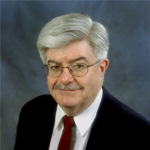
Richard Betts
Professor of War and Peace Studies, Columbia University
Richard K. Betts works on U.S. national security policy, military strategy, and intelligence. Among his books are three published by Columbia University Press (Soldiers, Statesmen, and Cold War Crises, 2d edition, 1991; Enemies of Intelligence, 2007; and American Force, 2012) and three by the Brookings Institution (Surprise Attack, 1982; Nuclear Blackmail and Nuclear Balance, 1987; and Military Readiness, 1995). He is currently working on how governments do and do not estimate prospective costs in blood and treasure when making decisions to go to war.

Patrick Cohrs
Professor of History & International Affairs, Yale University
Patrick O. Cohrs is Associate Professor of History and International Relations at Yale University. He has held fellowships at the Center for European Studies and the Kennedy School’s Belfer Center for Science and International Affairs at Harvard University. Before coming to Yale, he was the Alistair Horne Fellow at St Antony’s College, Oxford, and taught at Humboldt University Berlin. He is the author of The Unfinished Peace after World War I. America, Britain and the Stabilisation of Europe, 1919–1932 (Cambridge University Press, 2006). Professor Cohrs is currently working on a history of the “The Transformation of the Transatlantic Order” which re-appraises American aspirations for a “new world order” from their origins to the era of the cold war and explores how far they contributed to the creation of a more durable and legitimate international system. He teaches courses in modern international history, particularly on the United States and the world and the history of global, transatlantic and European international politics. He is one of the co-founders of the Yale International History program.

Charly Coleman
Assistant Professor of History, Columbia University
Charly Coleman, assistant professor, specializes in the history of eighteenth-century France, with a particular emphasis on the intersections between religion and Enlightenment thought. Before coming to Columbia, he taught at the University of Chicago and Washington University in St. Louis. His first book, The Virtues of Abandon, traces a far-ranging current of anti-individualism that infiltrated theology, philosophy, and politics from the final years of the reign of Louis XIV to the Revolution of 1789. He is currently at work on a project that examines the mechanisms and modes of belief at work in the spiritual, political, and economic lives of French subjects during the eighteenth century.

Margaret Crosby-Arnold
Adjunct Associate Research Scholar, Columbia University
Margaret Crosby-Arnold earned her MA and PhD in history at Brown University and taught European history at Howard University from 2006 to 2011. She has been a Research Fellow at King’s College-London and a Guest Scientist at the Max Planck Institute for European Legal History in Frankfurt. She is the author of The Making of a German Constitution: A Slow Revolution (Berg Books, 2008) and is completing Hannibals At the Gates: Global Migrations, Immigration Crisis, The Rise of the “Race” and Economic Dislocation in Europe, 1750-1815.

Christian Cwik
Lecturer, University of the West Indies
Dr. Christian Cwik has been the lecturer for European and Atlantic History Department at the University of the West Indies since August 2013. Before joining the University of the West Indies in St. Augustine he was lecturer of Caribbean and Latin American History at the University of Cologne in Germany. He has also held positions at Vienna University and the University of Graz in Austria. He has held visiting positions at Dresden University in Germany, the Pablo Olavide University in Seville, the Havana University in Cuba as well as at the Cartagena University in Colombia and the Bolivarian University in Venezuela. He is an expert on Austrian and German history.

John Davis
Professor of History, University of Connecticut
John A. Davis holds the Emiliana Pasca Noether Chair at the University of Connecticut and is Editor of the Journal of Modern Italian Studies. His recent publications include The Jews of San Nicandro (Yale University Press 2010) and Naples and Napoleon. Southern Italy and the European Revolutions 1780-1860 (Oxford University Press 2006/2008), the Italian edition of which (Rubbettino 2014) was awarded the 2014 Premio Sila ’49. He is currently working on a study of the South in the history of modern Italy.

Beatrice A. de Graaf
Professor of History of International Relations & Global Governance, Utrecht University
Beatrice A. de Graaf is Professor for the History of International Relations and Global Governance at Utrecht University. Her research interests include the history of international and national security in the West (19th-21st century), (counter)terrorism and political violence, securitization and international relations, and historical research on the development of security thinking. In 2014, she was awarded a consolidator grant from the European Research Council for her project “Securing Europe, fighting its enemies 1815-1914,” which pioneers a new multidisciplinary approach to the combined history of international relations and internal policy, aiming to “historicize security.” Recent publications include Evaluating Counterterrorism Performance. A Comparative Approach (Routledge, 2014), “Second-tier Diplomacy. Hans von Gagern and William I in their Quest for an Alternative European Order, 1813-1818” (Journal for Modern European History, 2014), and with C. Zwierlein “Historicizing Security. Entering the Conspiracy Dispositive” (Historical Social Research, 2013).

Victoria de Grazia
Professor of History, Columbia University
Victoria de Grazia, Moore Collegiate Professor of History, was educated at Smith College, University of Florence, and Columbia University where she received her Ph.D. in history with distinction in 1976. Before joining the Columbia faculty in 1994, she taught at Rutgers University. Her research interests lie in contemporary history, with longstanding commitments to studying western Europe and Italy from a gendered perspective and to developing a global perspective on commercial revolutions. Her publications include Irresistible Empire: America’s Advance Through Twentieth Century Europe (2005); The Sex of Things: Gender and Consumption in Historical Perspective (ed., 1996); How Fascism Ruled Women: Italy, 1922-1945 (1992); The Culture of Consent: Mass Organization of Leisure in Fascist Italy (1981). She is currently writing a book about intimacy and power in Fascist Italy.
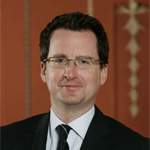
Patrick Geoghegan
Professor of History, Trinity College
Professor Patrick Geoghegan is a Professor of History at Trinity College Dublin. His books include a short study of ‘Lord Castlereagh’, the key British diplomat at the Congress of Vienna, as well an acclaimed two-volume study of the Irish nationalist leader, Daniel O’Connell, who did so much to challenge the nature of British rule in Ireland in the nineteenth century through the use of peaceful mass mobilisations. An expert on Anglo-Irish and imperial history, his current research looks at the concept of revolution in Irish history from 1641 to 1916, focusing on the changing nature of radical responses to power in Ireland.

Stella Ghervas
History & International Relations, Harvard University
Stella Ghervas is a visiting scholar at Harvard University’s Center for European Studies. Her research interests include European and international history, international relations, as well as history of Russia and Southeastern Europe. Her major book, Réinventer la tradition: Alexandre Stourdza et l’Europe de la Sainte-Alliance (Guizot Prize of the Académie Française in 2009), explores the intellectual climate and the political conceptions at the time of the Congress of Vienna; an English version is under contract with Cambridge University Press and will be published in 2016. She is currently completing a book entitled Conquering Peace: From the Enlightenment to the European Union for Harvard University Press. Its goal is to examine how the reflection on war and peace crystallized around a political definition of Europe, over the longue durée. In parallel, she is working on a transnational history of the Black Sea Region, from the Russian expansion in the eighteenth century to the present day.

Mark Jarrett
Author of The Congress of Vienna and its Legacy
Mark Jarrett received a B.A. from Columbia University, an M.A. in international history from the LSE, a J.D. from UC Berkeley, where he was an editor of the school’s law review and Order of the Coif, and a Ph.D. in history from Stanford University. He worked as an attorney in litigation and international business transactions in the San Francisco office of the international law firm of Baker & McKenzie. He is the author of The Congress of Vienna and its Legacy, which Andrew Roberts has called “penetratingly insightful,” and which Professor Charles Maier of Harvard University says “promises to become our generation’s authoritative study.” He is currently completing a book, Castlereagh and Counter-Revolution: Enlightened Conservatism and the Political Order, to be published by I.B. Tauris next year. His article “The Struggle for Poland at the Congress of Vienna” was published in the December 2014 issue of History Today.
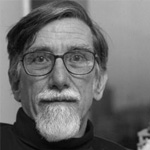
Robert Jervis
Professor of International Politics, Columbia University
Robert Jervis is Adlai E. Stevenson Professor of International Politics at Columbia University. His most recent book is Why Intelligence Fails: Lessons from the Iranian Revolution and the Iraq War (Cornell University Press, 2010), and his other books include American Foreign Policy in a New Era (Routledge, 2005), System Effects: Complexity in Political Life (Princeton University Press, 1997), and The Meaning of the Nuclear Revolution (Cornell University Press, 1989). He was President of the American Political Science Association in 2000-01 and has received career achievement awards from the International Society of Political Psychology and ISA’s Security Studies Section. In 2006 he was the recipient the National Academy of Science’s tri-annual award for behavioral sciences contributions to avoiding nuclear war and in 2014 received an honorary degree from the University of Venice.

Paul E. Lovejoy
Professor of History, York University
Paul E. Lovejoy is Distinguished Research Professor, Department of History, York University, and holds the Canada Research Chair in African Diaspora History. He is a Fellow of the Royal Society of Canada, and was the Founding Director of the Harriet Tubman Institute for Research on Africa and Its Diasporas. Formerly a member of the UNESCO “Slave Route” Project (Section du dialogue interculturel), he has published more than twenty-five books, including Transformations in Slavery (3rd ed., 2011); is co-editor of African Economic History and is General Editor of the Harriet Tubman Series on the African Diaspora, Africa World Press. In 2007, he was awarded an Honorary Degree, Doctor of the University, University of Stirling; in 2009 he received the President’s Research Award of Merit at York University. He is also the recipient of the Distinguished Africanist Award, the University of Texas at Austin, in 2010, the Life Time Achievement Award from the Canadian Association of African Studies in 2011, and the Teaching Award from the Faculty of Graduate Studies, York University in 2012. His book, Jihad and Slavery in West Africa during the Age of Revolutions (1775-1850) is forthcoming with Ohio University Press. He is currently finishing another book, Equiano’s World: A Biography of Abolitionist Gustavus Vassa (c.1742-1797).

Ambassador Antonio Patriota
Permanent Representative of Brazil to the UN
Ambassador Antonio de Aguiar Patriota, Permanent Representative of Brazil to the United Nations, was Minister of External Relations of Brazil from January 2011 to August 2013; Deputy Foreign Minister from October 2009 to December 2010; Ambassador of Brazil to the United States from 2007 to 2009; Undersecretary General for Political Affairs at the Foreign Ministry from 2005 to 2007; Chief of Staff to the Foreign Minister, in 2004; and Secretary for Diplomatic Planning at the Foreign Ministry, in 2003.Overseas, he served at Brazil’s Permanent Mission to the International Organizations in Geneva (1999-2003), having acted for two years as Deputy Permanent Representative to the World Trade Organization; at Brazil’s Permanent Mission to the United Nations in New York (1994-1999), where he was a member of the Brazilian Delegation to the U.N. Security Council; at the Embassies of Brazil in Caracas (1988-1990) and Beijing (1987-1988); and at Brazil’s Permanent Mission in Geneva (1983-1987). From 1992 to 1994, he was Deputy Diplomatic Advisor to then President Itamar Franco.

Susan Pedersen
Professor of History, Columbia University
Susan Pedersen, Professor and James P. Shenton Professor of the Core Curriculum, specializes in British history, the British empire, comparative European history, and international history. Her book on the impact of the League of Nations on the imperial order, The Guardians: The League of Nations and the Crisis of Empire, will appear from Oxford University Press in May 2015.
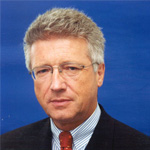
Wolfgang Petritsch
President, Austrian Marshall Plan Foundation
Wolfgang Petritsch was the EU’s Special Envoy for Kosovo (1998-1999), EU chief negotiator at the Kosovo peace talks in Rambouillet and Paris (1999), and then High Representative for Bosnia and Herzegovina (1999-2002). He served as the Austrian ambassador to the UN in Geneva (2002-2008) and to the OECD in Paris (2008-2013), and is currently President of the Austrian Marshall Plan Foundation and the Joseph A. Schumpeter Fellow at Harvard University.
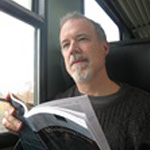
Matthew Rendall
Lecturer in Politics and International Relations, University of Nottingham
Much of Matthew Rendall’s research seeks to explain long periods of international peace, particularly the 19th-century Concert of Europe. He has examined the descriptive accuracy of offensive and defensive realism, whether there is a ‘separate peace’ among democracies, and an unusual case of successful collective security cooperation. Recently he has been writing about intergenerational justice and the ethics of climate change.

Gideon Rose
Editor, Foreign Affairs
Gideon Rose is the editor of Foreign Affairs and the Peter G. Peterson chair. He served as managing editor of the magazine from 2000 to 2010. Prior to this, he was the Olin senior fellow and deputy director of national security studies at the Council on Foreign Relations. From 1994 to 1995, Mr. Rose served as associate director for Near East and South Asian affairs on the staff of the National Security Council. He was assistant editor at the foreign policy quarterly the National Interest from 1986 to 1987, and held the same position at the domestic policy quarterly the Public Interest from 1985 to 1986. He is the author of How Wars End: Why We Always Fight the Last Battle (Simon & Schuster, 2010).

Glenda Sluga
Professor of History, University of Sydney
Glenda Sluga is Professor of International History at the University of Sydney and Australian Research Council Kathleen Fitzpatrick Laureate Fellow. She directs the Laureate Research Program in International History, and her publications include Internationalism in the Age of Nationalism (University of Pennsylvania Press, 2013), The Nation, Psychology and International Politics (Palgrave, 2006), The Problem of Trieste and the Italo-Yugoslav Border (State University of New York Press, 2001), and Gendering European History (Continuum, 2000). She is currently completing an ARC-funded study of the Congress of Vienna and the Remaking of Europe.

Jack Snyder
Professor of International Relations, Columbia University
Jack Snyder is the Robert and Renee Belfer Professor of International Relations in the Department of Political Science and the Saltzman Institute of War and Peace Studies at Columbia. His books include Power and Progress: International Politics in Transition (Routledge 2012); Religion and International Relations Theory (Columbia 2011); Electing to Fight: Why Emerging Democracies Go to War (MIT Press, 2005), co-authored with Edward D. Mansfield; From Voting to Violence: Democratization and Nationalist Conflict (Norton 2000); Myths of Empire: Domestic Politics and International Ambition (Cornell 1991); and Civil Wars, Insecurity, and Intervention, co-edited with Barbara Walter (Columbia 1999). His articles on such topics as democratization and war, imperial overstretch, war crimes tribunals versus amnesties as strategies for preventing atrocities, and international relations theory after September 11 have appeared in The American Political Science Review, Foreign Affairs, Foreign Policy, International Organization, International Security, and World Politics.
Reinhard Stauber
Professor of History, University of Klagenfurt
Reinhard A. Stauber is Professor of Modern and Austrian History at the University of Klagenfurt, Austria. He is a member of the ‘Historische Kommission’ of the Bavarian Academy of Sciences, Munich, served as Dean in the Faculty of Cultural Sciences, University of Klagenfurt, 2011-2013, and currently is Deputy Head of the Department of History. His research interests cover the history of national identity in the modern period, Enlightenment and reform absolutism in the Habsburg monarchy, Napoleonic rule in Germany and Italy and the Congress of Vienna. His research project ‘The Congress of Vienna and the European Peace System‘ was endowed by the Austrian Science Fund (FWF) 2009-2013. His monographic publications include Der Wiener Kongress (2014); Mächtepolitik und Friedenssicherung. Zur politischen Kultur Europas im Zeichen des Wiener Kongresses (co-ed.)(2014) ); L’Autriche intérieure – Im Innern Österreichs (ed.)(2005); Der Zentralstaat an seinen Grenzen. Administrative Integration, Herrschaftswechsel und politische Kultur im südlichen Alpenraum 1750-1820 (2001).

Brian Vick
Associate Professor of History, Emory University
Brian Vick is Associate Professor of History at Emory University. He is the author of essays on German nationalism, historicism, and ideas of race, and of the books Defining Germany: The 1848 Frankfurt Parliamentarians and National Identity (Cambridge, Mass.: Harvard University Press, 2002), and The Congress of Vienna: Power and Politics after Napoleon (Cambridge, Mass.: Harvard University Press, 2014). His ongoing research interests include the development of nineteenth-century political culture, the social and political roles of women, network analysis, and the origins of humanitarian and liberal imperialist diplomacy in the drives toward abolition of the African slave trade and interdiction of the Barbary corsairs.

Larry Wolff
Professor of History, New York University
Larry Wolff is the Silver Professor of History at New York University, and Director of the NYU Center for European and Mediterranean Studies. His most recent book is Paolina’s Innocence: Child Abuse in Casanova’s Venice (2012). He is also the author of The Idea of Galicia: History and Fantasy in Habsburg Political Culture (2010), Venice and the Slavs: The Discovery of Dalmatia in the Age of Enlightenment (2001), Inventing Eastern Europe: The Map of Civilization on the Mind of the Enlightenment (1994), The Vatican and Poland in the Age of the Partitions (1988), and Postcards from the End of the World: Child Abuse in Freud’s Vienna (1988). He has received Fulbright, American Council of Learned Societies, and Guggenheim fellowships, and he is a member of the American Academy of Arts and Sciences.
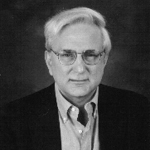
Isser Woloch
Professor Emeritus of History, Columbia University
Isser Woloch, Moore Collegiate Professor Emeritus of History, specializes in the social and political history of 18th and 19th century France. He is currently working on a book project entitled The Postwar Moment: The Allied Democracies in the Aftermath of World War II. Using parallel narratives, this book examines “the postwar moment” in Britain, France, and the United States, when a progressive impetus for national transformation clashed with the inertial forces of “normalcy.”

